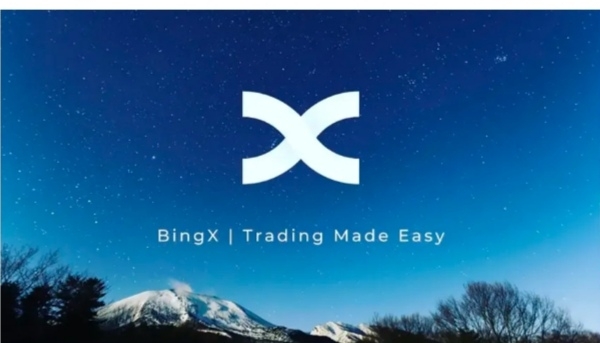#Bingx HFT,
#Trading Fees,
#Bitfinex HFT
Bitfinex HFT vs BingX HFT
What is Hashflow (HFT)?
Hashflow is an interoperable decentralized exchange (DEX) aimed at providing trades with zero slippage and protection against miner extractable value (MEV). It offers commission-free trading and ensures that price quotes are executed at the displayed prices, enabling smooth cross-chain trading without the need for bridges or synthetic assets.
How does Hashflow work?
Hashflow is a decentralized exchange (DEX) that enables users to trade assets across multiple blockchain networks without the need for bridges. The platform offers a secure environment for trades, providing protection from slippage and miner extractable value (MEV) exploits.
The platform uses a hybrid on-chain/off-chain Request for Quote (RFQ) engine that fetches quotes from market makers who manage liquidity in on-chain pools. These quotes are cryptographically signed, ensuring that the prices offered remain unchanged during the entire trade process. This eliminates the risk of manipulation by MEV bots and ensures that users receive guaranteed prices.
Hashflow also safeguards users from slippage caused by cross-chain MEV. This can occur when there is significant price movement between the time a transaction is validated on the source chain and when the payload is transmitted to the destination chain. By protecting users from both slippage and MEV exploits, Hashflow offers a secure and seamless way to trade assets across multiple blockchain networks.
What is the HFT token?
HFT is the official token for both Hashflow protocol and the gamified governance platform, Hashverse. Staking HFT grants users access to various features within the Hashflow ecosystem.
Buying Hashflow on Bitfinex vs BingX
Trading Fees
Cryptocurrency trading takes place on digital exchanges, similar to stock exchanges, but only for cryptocurrencies. To make the most of these trades, it is crucial to understand the fee structure that exchanges have in place.
Fees for cryptocurrency trading can vary significantly across platforms. Some exchanges charge a flat fee for all trades, while others charge a percentage of the trade amount. Some also offer discounts for membership or high trading volume.
Bitfinex has a fee structure of 0.1% for both makers and takers on most trades, but it provides discounts to users who hold the exchange's native token (LEO) or those who trade large volumes. BingX has even lower fees, with maker and taker fees as low as 0.075% on most trades.
Please see the table below for a quick overview:
Bitfinex. BingX
Maker Fee. 0.1%. 0.075%
Taker Fee. 0.1%. 0.075%
It's important to keep in mind that these fees are just examples and may change over time. Always check the current fee schedule for the exchange you are considering, and compare fees to find the most competitive rates.
Services and Features Offered
Bitfinex is a digital asset trading platform established in 2012. It provides trading services for various cryptocurrencies, such as Bitcoin, Ethereum, and others. The platform boasts advanced trading features, such as margin trading and liquidity swaps, and is well-regarded by some in the cryptocurrency community. However, it has faced controversy in the past, including a 2018 investigation by the New York Attorney General over the loss of $850 million in customer funds.
BingX, on the other hand, is an international digital financial institution offering services in regions like North America, Canada, the EU, Hong Kong, and Taiwan. Its services include lending, borrowing, staking, and buying and selling of cryptocurrencies. Additionally, BingX offers a referral program, a trading competition, and a copy trading feature which allows users to follow the trades of experienced traders.
Ultimately, the best option between Bitfinex and BingX will depend on the user's needs and preferences. It's crucial to conduct thorough research on both platforms and consult with financial advisors before making any investment decisions.
#Bingx HFT, #Trading Fees, #Bitfinex HFT
Bitfinex HFT vs BingX HFT
What is Hashflow (HFT)?
Hashflow is an interoperable decentralized exchange (DEX) aimed at providing trades with zero slippage and protection against miner extractable value (MEV). It offers commission-free trading and ensures that price quotes are executed at the displayed prices, enabling smooth cross-chain trading without the need for bridges or synthetic assets.
How does Hashflow work?
Hashflow is a decentralized exchange (DEX) that enables users to trade assets across multiple blockchain networks without the need for bridges. The platform offers a secure environment for trades, providing protection from slippage and miner extractable value (MEV) exploits.
The platform uses a hybrid on-chain/off-chain Request for Quote (RFQ) engine that fetches quotes from market makers who manage liquidity in on-chain pools. These quotes are cryptographically signed, ensuring that the prices offered remain unchanged during the entire trade process. This eliminates the risk of manipulation by MEV bots and ensures that users receive guaranteed prices.
Hashflow also safeguards users from slippage caused by cross-chain MEV. This can occur when there is significant price movement between the time a transaction is validated on the source chain and when the payload is transmitted to the destination chain. By protecting users from both slippage and MEV exploits, Hashflow offers a secure and seamless way to trade assets across multiple blockchain networks.
What is the HFT token?
HFT is the official token for both Hashflow protocol and the gamified governance platform, Hashverse. Staking HFT grants users access to various features within the Hashflow ecosystem.
Buying Hashflow on Bitfinex vs BingX
Trading Fees
Cryptocurrency trading takes place on digital exchanges, similar to stock exchanges, but only for cryptocurrencies. To make the most of these trades, it is crucial to understand the fee structure that exchanges have in place.
Fees for cryptocurrency trading can vary significantly across platforms. Some exchanges charge a flat fee for all trades, while others charge a percentage of the trade amount. Some also offer discounts for membership or high trading volume.
Bitfinex has a fee structure of 0.1% for both makers and takers on most trades, but it provides discounts to users who hold the exchange's native token (LEO) or those who trade large volumes. BingX has even lower fees, with maker and taker fees as low as 0.075% on most trades.
Please see the table below for a quick overview:
Bitfinex. BingX
Maker Fee. 0.1%. 0.075%
Taker Fee. 0.1%. 0.075%
It's important to keep in mind that these fees are just examples and may change over time. Always check the current fee schedule for the exchange you are considering, and compare fees to find the most competitive rates.
Services and Features Offered
Bitfinex is a digital asset trading platform established in 2012. It provides trading services for various cryptocurrencies, such as Bitcoin, Ethereum, and others. The platform boasts advanced trading features, such as margin trading and liquidity swaps, and is well-regarded by some in the cryptocurrency community. However, it has faced controversy in the past, including a 2018 investigation by the New York Attorney General over the loss of $850 million in customer funds.
BingX, on the other hand, is an international digital financial institution offering services in regions like North America, Canada, the EU, Hong Kong, and Taiwan. Its services include lending, borrowing, staking, and buying and selling of cryptocurrencies. Additionally, BingX offers a referral program, a trading competition, and a copy trading feature which allows users to follow the trades of experienced traders.
Ultimately, the best option between Bitfinex and BingX will depend on the user's needs and preferences. It's crucial to conduct thorough research on both platforms and consult with financial advisors before making any investment decisions.







